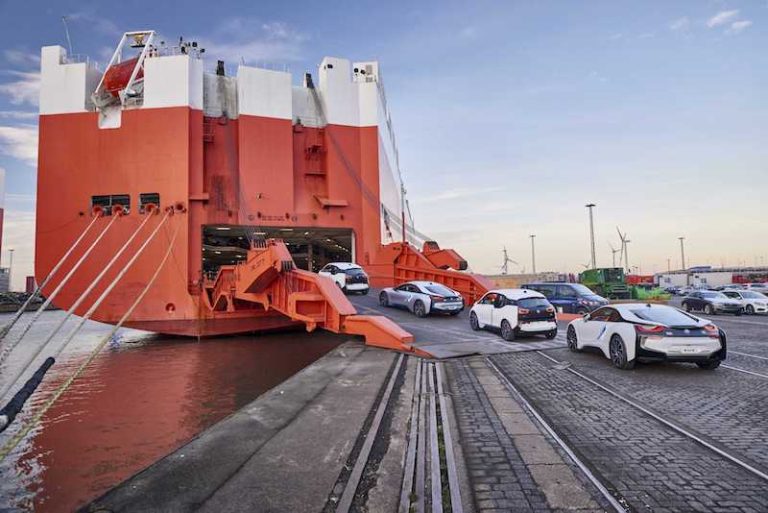How Much Does Gasoline Weigh?
Gasoline is something we use all the time, especially if we drive cars. But have you ever wondered how much it actually weighs? The weight of gasoline can be surprising because it’s lighter than water. This means that a gallon of gasoline won’t weigh the same as a gallon of water. In this guide, we’re going to look into the specifics of gasoline’s weight, how it’s measured, and why it’s important for various reasons.

How Much Does Gasoline Weigh?
Gasoline is a common fuel for cars, and it’s interesting to note that it’s lighter than water. On average, a gallon of gasoline weighs about 6 to 6.3 pounds. This means if you fill up your car’s tank, the gasoline adds weight, but not as much as if it were water.
The weight can change a little with the weather because gasoline expands when it’s warm and shrinks when it’s cold. Knowing this helps us know how much fuel we’re putting in our cars and how it affects the vehicle’s weight and performance.
What Factors Influence Gasoline’s Weight?
Here are the factors that influence gasoline weight:

1. Gasoline Composition:
Gasoline weight can vary based on its composition. Different types of gasoline and additives can impact the overall weight of a gallon.
2. Temperature Influence:
Temperature plays a key role in gasoline weight. Warm gasoline is lighter than colder gasoline, affecting the overall weight per gallon.
3. Storage Conditions:
Where and how gasoline is stored can also influence its weight. Factors such as storage temperature and humidity levels can impact the density of gasoline.
4. Fuel Quality:
The quality of gasoline, including its purity and any contaminants present, can affect its weight. Higher quality gasoline may have a different weight compared to lower quality options.
5. Environmental Factors:
External conditions, such as altitude and air pressure, can impact gasoline weight. Knowing how these factors influence weight is crucial for optimal fuel management.
Why Does a Gallon of Gas Weigh Less Than a Gallon Of Water?
A gallon of gas weighs less than a gallon of water because of its density. Density is a measure of how much mass is packed into a certain volume. Water has a higher density than gasoline, meaning for the same volume (one gallon in this case), water has more mass and therefore weighs more.

Here’s a breakdown:
- Density of Water: Around 1 gram per cubic centimeter (g/cm³). This is a common reference point for density.
- The density of Gasoline: Ranges from about 0.72 to 0.78 g/cm³. This is lower than the density of water.
- Volume of a Gallon: Approximately 3785.41 cubic centimeters (cm³).
Since gasoline has a lower density than water, even though they occupy the same volume (one gallon), gasoline has less mass and consequently weighs less.
Why is Diesel Heavier Than Gasoline?
Diesel fuel is heavier than gasoline for two main reasons:
-
Molecule Size: Diesel fuel is made up of larger, heavier hydrocarbon molecules compared to gasoline. Think of it like packing suitcases for a trip. You can fit more small shirts in a suitcase than bulky sweaters. In the same way, a gallon of gasoline can hold more of its smaller molecules than diesel can of its larger ones.
-
Density: As a consequence of having larger molecules, diesel is also denser than gasoline. Density refers to how much mass is packed into a specific volume. Even though a gallon of diesel and a gallon of gasoline hold the same volume, the diesel packs more mass (due to larger molecules) into that volume, making it weigh more.
It’s important to note that while diesel is denser, it actually holds more energy per unit of volume compared to gasoline. This is because the larger molecules in diesel store more potential energy. So, even though a gallon of diesel weighs more, it can potentially provide more power.
Does the Weight of Gas Change With the Weather?
Yes, the weight of gasoline does change with the weather, primarily due to temperature effects on its density. Here’s how weather can influence the weight of gasoline:

-
Temperature Changes: Gasoline expands in hot weather and contracts in cold weather. Since density is mass divided by volume, when the volume increases (expands) with temperature, the density decreases, and vice versa. This means a gallon of gasoline will weigh less in hot weather than in cold weather because you’re getting a slightly larger volume for the same mass.
-
Impact on Filling Up: When you fill up your car in different temperatures, the amount of energy (since energy content is related to mass, not volume) you get can vary slightly. However, gasoline pumps measure volume (gallons or liters), not mass, so the temperature-induced density changes mean you might get slightly more energy per pump in colder temperatures.
-
Storage and Transportation: The gasoline’s weight change due to weather is also a consideration for its transportation and storage. In warmer conditions, because gasoline expands, storage tanks need to be designed to accommodate these volume changes without overflowing or losing pressure.
-
Compensation Mechanisms: Some fuel storage and delivery systems use temperature compensation to ensure that the energy content per transaction remains consistent, regardless of temperature. However, this is more common in commercial or industrial settings than at consumer fuel pumps.
Frequently Asked Questions
Why does gasoline weigh less than water?
Gasoline weighs about six pounds per gallon, 25% lighter than water. This is because of the differences in density between the two liquids, with water weighing about 8.4 pounds per gallon.
What is the weight of jet fuel?
Jet fuel weight varies depending on type. Jet-A and Jet-A Prist weigh 6.75 pounds per gallon, while 100LL and other jet fuels weigh 6.0 pounds per gallon.
How much does gas weigh in pounds?
A gallon of gasoline weighs approximately six pounds. This weight may vary slightly based on the type of gasoline and its additives.

Hi! I’m Larry Gibbs, studying mechanical engineering with a focus on cars. I really love Ferraris and write blog posts about the latest car stuff. When not studying or blogging, I’m usually on a road trip exploring new places. I also enjoy playing football and watching movies. Life’s an adventure, and I’m all about enjoying the ride!






